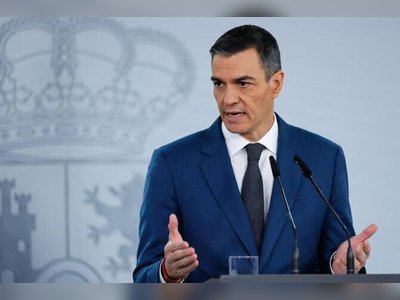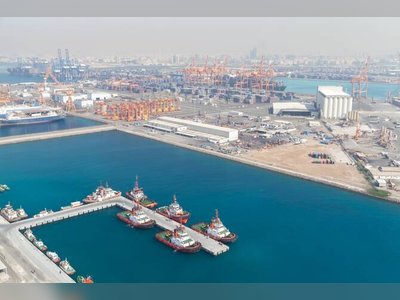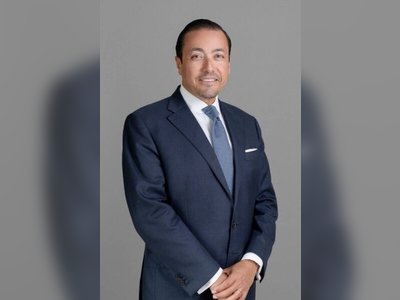Kony Survivors Recall Horrors as Trial Begins at ICC
Northern Ugandan survivors of Joseph Kony's brutal Lord's Resistance Army insurgency prepare to follow the trial from home.
Every evening, Everlyn Ayo left her village in northern Uganda, joining thousands of so-called night commuters hoping to escape the horrors of Joseph Kony and his Lord’s Resistance Army.
The messianic Kony, whose case is being heard by the International Crime Court (ICC) from Tuesday, led one of the world’s most barbaric insurgencies, massacring and mutilating tens of thousands, kidnapping children to turn them into soldiers or sexual slaves.
Ayo saw this brutality first-hand when Kony’s forces attacked her school in Nwoya district when she was around five years old.
'The rebels raided the school, killed and cooked our teachers in big drums and we were forced to eat their remains,' she recounted from her home in Gulu.
Twenty years ago, Kony became the first person ever issued with an arrest warrant by the ICC, though his war crimes hearing will be in absentia since he has never been caught.
Ayo, now 39, will follow the case on her radio, thousands of miles from The Hague.
After her school was attacked, Ayo’s family sent her to relatives in a remote village but soon became night commuters themselves, walking around five kilometers each day through forests and jungles to stay in towns or shelters where they hoped there was less risk of being kidnapped by Kony’s forces.
'We would leave the villages at 4:00 p.m., because the distances were long and we feared the villages at night.
In the morning, we had to wait for daylight at around 8:00 am to return,' Ayo recalled.
The shelters were sporadically guarded by government troops, though they often abandoned their posts out of fear.
'We were so many children that even if you did not cover yourself at night, you did not feel cold because we were squeezed together,' she remembered.
Each morning, after walking for hours, new horrors awaited them.
'Many times on our return to the village, we would find blood-soaked dead bodies.
Seeing all that blood as a child traumatized my eyes.
For many years now, I do not see well; all I see is blood.'
Wilfred Lalobo, 60, showed AFP a monument in Lukodi for 69 people killed by Kony’s forces on May 19, 2004.
When the rebels arrived, the few government troops fled.
'Then they started killing civilians,' he said.
'Some were stabbed with bayonets, others hacked and some burned alive in their houses.'
Kony's trial will be followed closely here, particularly by those who have sought to rebuild their shattered lives.
Stella Angel Lanam was 10 when she was captured by the LRA, becoming a child soldier after being indoctrinated by the insurgents.
She spent nine years in captivity and is now the director of an initiative offering support to victims.
Lanam said the trial offered some justice for Kony's many victims.
Ayo worries that the world has too quickly forgotten the trauma inflicted by Kony’s forces.
'Joseph Kony should be punished severely in a way that the world will never forget,' she insisted.
The messianic Kony, whose case is being heard by the International Crime Court (ICC) from Tuesday, led one of the world’s most barbaric insurgencies, massacring and mutilating tens of thousands, kidnapping children to turn them into soldiers or sexual slaves.
Ayo saw this brutality first-hand when Kony’s forces attacked her school in Nwoya district when she was around five years old.
'The rebels raided the school, killed and cooked our teachers in big drums and we were forced to eat their remains,' she recounted from her home in Gulu.
Twenty years ago, Kony became the first person ever issued with an arrest warrant by the ICC, though his war crimes hearing will be in absentia since he has never been caught.
Ayo, now 39, will follow the case on her radio, thousands of miles from The Hague.
After her school was attacked, Ayo’s family sent her to relatives in a remote village but soon became night commuters themselves, walking around five kilometers each day through forests and jungles to stay in towns or shelters where they hoped there was less risk of being kidnapped by Kony’s forces.
'We would leave the villages at 4:00 p.m., because the distances were long and we feared the villages at night.
In the morning, we had to wait for daylight at around 8:00 am to return,' Ayo recalled.
The shelters were sporadically guarded by government troops, though they often abandoned their posts out of fear.
'We were so many children that even if you did not cover yourself at night, you did not feel cold because we were squeezed together,' she remembered.
Each morning, after walking for hours, new horrors awaited them.
'Many times on our return to the village, we would find blood-soaked dead bodies.
Seeing all that blood as a child traumatized my eyes.
For many years now, I do not see well; all I see is blood.'
Wilfred Lalobo, 60, showed AFP a monument in Lukodi for 69 people killed by Kony’s forces on May 19, 2004.
When the rebels arrived, the few government troops fled.
'Then they started killing civilians,' he said.
'Some were stabbed with bayonets, others hacked and some burned alive in their houses.'
Kony's trial will be followed closely here, particularly by those who have sought to rebuild their shattered lives.
Stella Angel Lanam was 10 when she was captured by the LRA, becoming a child soldier after being indoctrinated by the insurgents.
She spent nine years in captivity and is now the director of an initiative offering support to victims.
Lanam said the trial offered some justice for Kony's many victims.
Ayo worries that the world has too quickly forgotten the trauma inflicted by Kony’s forces.
'Joseph Kony should be punished severely in a way that the world will never forget,' she insisted.




